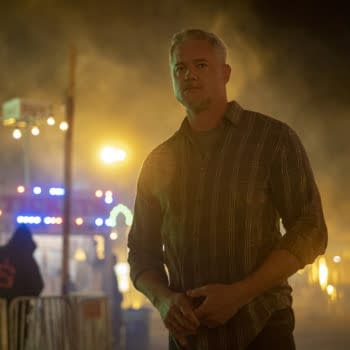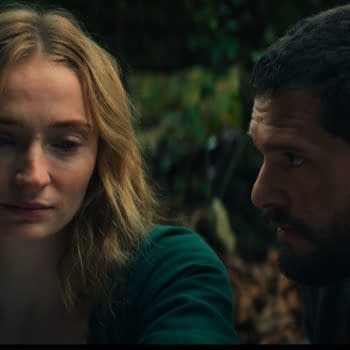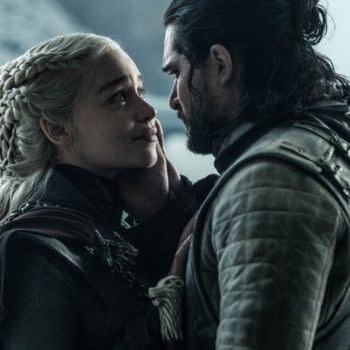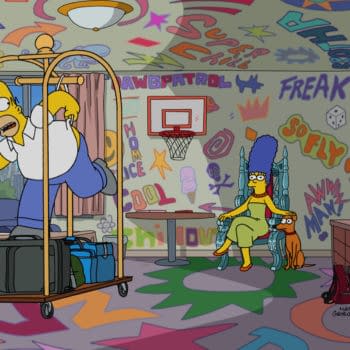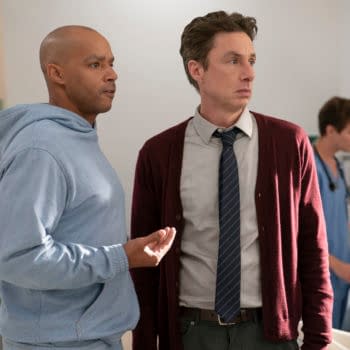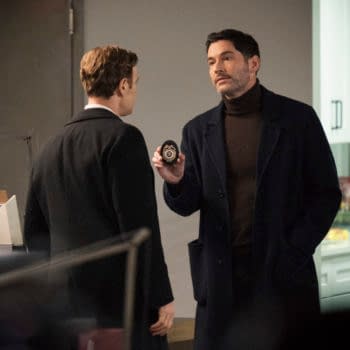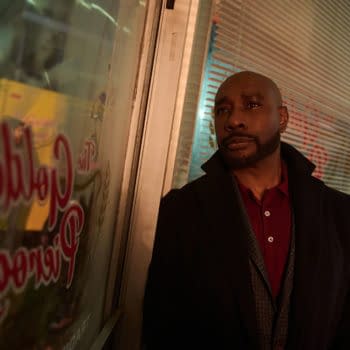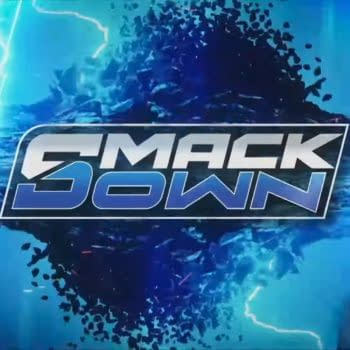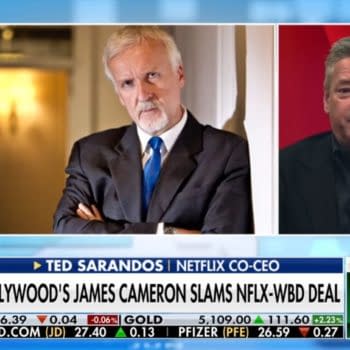Posted in: Paramount+, Star Trek, TV | Tagged: star trek, Star Trek: Khan, Starfleet Academy
Star Trek: Khan: Beyer Discusses Starfleet Academy, Canon Flexibility
Star Trek: Khan EP/writer Kirsten Beyer spoke with us about the audio drama's success, Starfleet Academy's focus, creative growth, and more.
Article Summary
- Kirsten Beyer discusses the success and fan response to the Star Trek: Khan audio drama.
- Starfleet Academy will focus on cadets and new species, expanding Star Trek canon in the 32nd century.
- Returning Trek characters, like The Doctor, play key roles without relying on nostalgia in new stories.
- Beyer explains creative growth, balancing Star Trek canon with flexibility and deeper character focus.
Kirsten Beyer is one of the most accomplished creatives in Star Trek, having a hand in every Paramount+ live-action series, including Discovery, Picard, Strange New Worlds, and the upcoming Starfleet Academy. As difficult as it can be to build into the existing canon in the franchise as an original concept, it could be pretty tricky to fill in the gaps especially when there could be potential conflicting conflict as is the case between the events of The Original Series and what was changed in Strange New Worlds, regarding one of the series greatest adversaries, the Augments, led by Khan Noonien Singh.
In the latest audio drama, Star Trek: Khan, Beyer, alongside The Wrath of Khan director/writer Nicholas Meyer, tells the story of the legendary tyrant (voiced by Naveen Andrews) since the events of the TOS season one episode "Space Seed" and before the 1982 film. On the heels of the Khan finale, Beyer spoke to Bleeding Cool about fan reception of the audio drama, how it's fertile ground for future storytelling if Paramount is unwilling to commit the story to screen, why Starfleet Academy is far more than an update on the state of the Star Trek galaxy, how Voyager alum Robert Picardo's The Doctor has changed in his 900 years of existence, and how her history as an author and in Star Trek helped rewire her brain in confronting the malleability of the franchise and challenging its conventions while honoring canon.
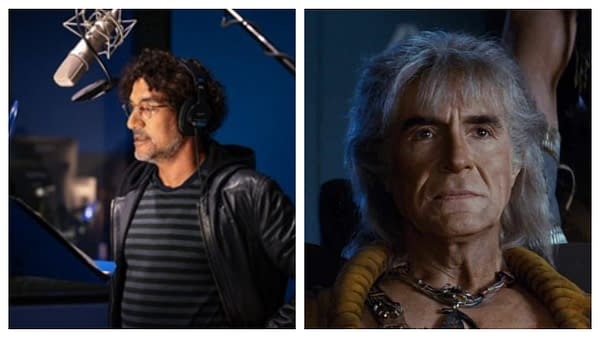
Star Trek: Khan EP/Writer Kirsten Beyer on Reception to Audio Drama, the Dynamic of Starfleet Academy, The Doctor, and More.
What has been the general reception for Star Trek: Khan, and how has the audio drama format been received?
From the fans and the people who have listened to it, the response has been overwhelmingly positive. Most comments and reviews have been overwhelmingly positive. They enjoyed the audio format and performances; they thought the sound engineering was incredible. They were also quite pleased with the writing, so that was great. I don't know if there was any question about whether Star Trek can work in this format, but that question is answered. It absolutely can. What that means going forward, though, I still have no idea. Internally, we're not having a bunch of conversations about what the next audio drama we're going to do.
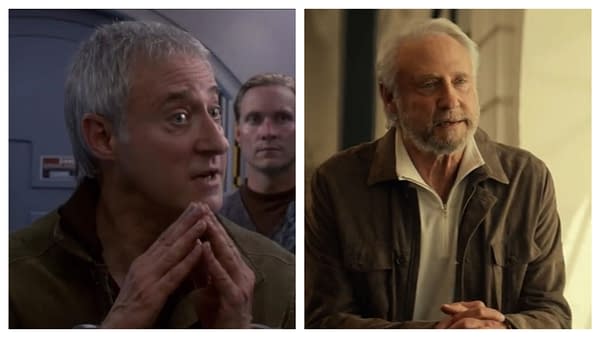
One thing I thought, perhaps in the future, the way Soongs from Arik in Enterprise and Adam in Picard were teased of how they got played into the Augment storyline, and hopefully, one of these days those stories get fleshed out. I wanted to shift to Starfleet Academy. One thing I have always wondered, aside from the current crop of characters emerging in the 32nd century, is the broad, diverse range of races that come together, representative of the ideal Star Trek experience. I always thought one of the interesting things about the way the old Star Trek presented an immersive experience with various civilisations, such as the Klingons, Romulans, Ferengi, Cardassians, and Bajorans, in the 23rd-24th centuries, through shows like TOS, TNG, and DS9. Are we going to have that level of intimacy with just the way we explore those worlds as we did from previous shows, as it relates to the 32nd century, because I know we got sort of a tease on Discovery when we got introduced to like the new Starfleet and seeing what we had represented at the table.
The thing you must remember is that the Klingons weren't the Klingons the first time we saw them, right? Right. We saw them a few times and got some glimpses of that, the same with the Romulans, little glimpses of this culture. We've now had sixty years of different stories touching them, building them out, and giving us their history, so we feel like they are this very known quantity. We are definitely meeting new species in the future, and the first few times you meet them, or the first time you meet them, it's going to feel like it did on TOS, where it's like, "My gosh! There's so much more to know about these people," but you're not necessarily going to get them get that in in a single episode.
We're going to have to see how those races and different people get expanded over time, but the focus always remains our cadets, their life school, and what they're learning, and how those adventures are progressing. We're definitely building upon some canon and some new species, but I wouldn't expect them to be like that deep and rich instantly, because that's not how it works.
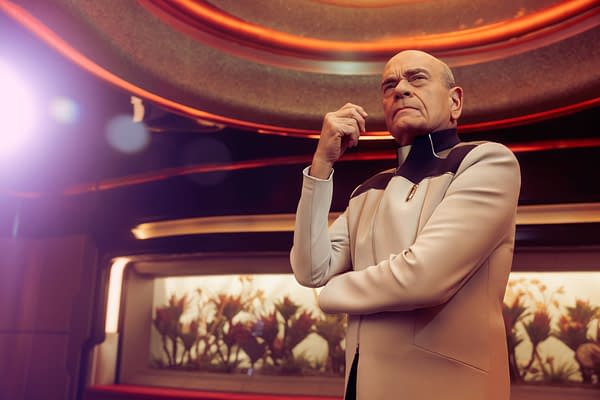
So we also have some holdovers from Discovery, like Tig Notaro, Mary Wiseman, and Oded Fehr, along with Bob Picardo from Voyager, in the series. What does it mean to have that kind of presence in the new show?
It's so fantastic because only in science fiction are things like that possible, right? The only reason we can have Bob Picardo is that he's a hologram, and holograms can be 900 years old. It's an exciting opportunity to explore. What happens with beings that exist that long? How do they change? How do they not? The things they hold on to, the things that they discover, make the show feel grounded in this universe that we all love so much. It's only useful if you can also take it forward. It's not about nostalgia. It's not about, "Oh, this guy made me feel a certain way." It's about this character being here for a certain reason that is important to this story now, and that allows us to continue forward, and we've done a pretty good job of that.
You're coming up on almost a decade in Star Trek. How do you feel you've grown creatively in this franchise?
It's hard to articulate how much I've grown. The first way, and perhaps the most important, was when I came up with writing the novels; our adherence to canon was absolute. I was working with people who then knew a whole lot more about that than I did and kept pointing me in the right directions, right? When I started on Discovery, I was the person who was supposed to sort of raise my hand and go, "But in episode 19 of season three of whatever, this is what happened, and this thing you're pitching conflicts with that."
Even at that time, I felt like the entire Star Trek universe was this real living thing we don't necessarily know everything about the way we know our own history, but it had to have all those pieces to it that we'd never seen. It must have a functioning government, it must have all these different cultures, and the way they interact. We know enough about those things in how they have to work, but we've never actually seen them working, right? Doing this work in this way has taught me not that canon is totally malleable and flexible, but that canon is something we don't need, but there are way more ways to think about what's possible than I knew when I started this.
At the time, if something bumped against something we already knew, I'd be like, "Wait, we can't do that," and now the question is, "Wait, how can we do that?" Because that's an interesting story, "This is what we know. How are we going to build from there?" My thinking on that evolved in a way that allows lots of different kinds of stories to enrich it rather than just discarding or breaking it, which I was a little bit less flexible about when I started. Then, also going more deeply into character, right? We've seen how many hours of Kirk, Spock, and McCoy, and I think Spock is a little bit of an exception, because he's been in so many other series. There are a million things I can't tell you about Jim Kirk's life, or Bones' life. We saw them in the episodes, did what they needed to do, they had the relationships they had, and then we all moved on with our lives.
Novel writing was the thing that got me to think way more deeply about character motivation, connection, emotional life, all those things that you don't necessarily get to see. You get to see what the actors portray, but the stories don't talk about it. It's there. It has changed the way I approach character now in the universe, where I always feel like it can be way more complex, deeper, and evolve over many episodes, as opposed to locking them into, "This is who these guys are, enjoy watching them play in the universe."
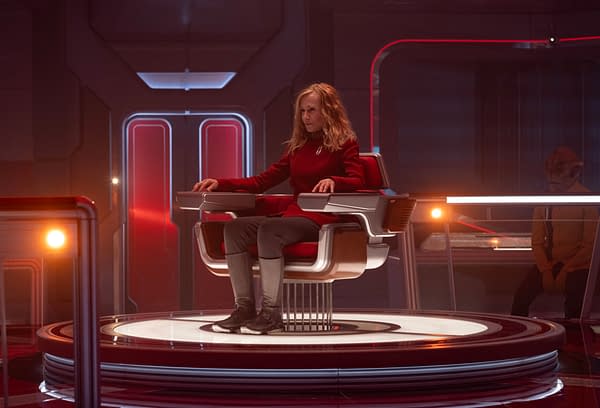
All episodes of Star Trek: Khan, which also features the voices of Wrenn Schmidt, Sonya Cassidy, George Takei, Tim Russ, Olli Haaskivi, Maury Sterling, Mercy Malick, and Zuri Washington, are available from your favorite podcasting platform and YouTube. Starfleet Academy, which also stars Holly Hunter, Sandro Rosta, Karim Diané, Kerrice Brooks, George Hawkins, Bella Shepard, Zoë Steiner, Rebecca Quin, and Paul Giamatti, premieres January 15th on Paramount+.






